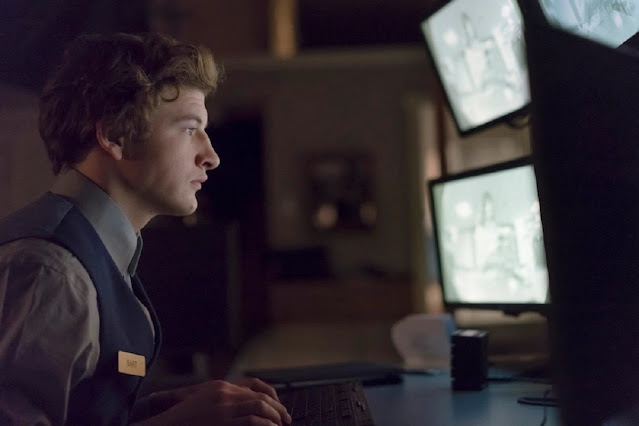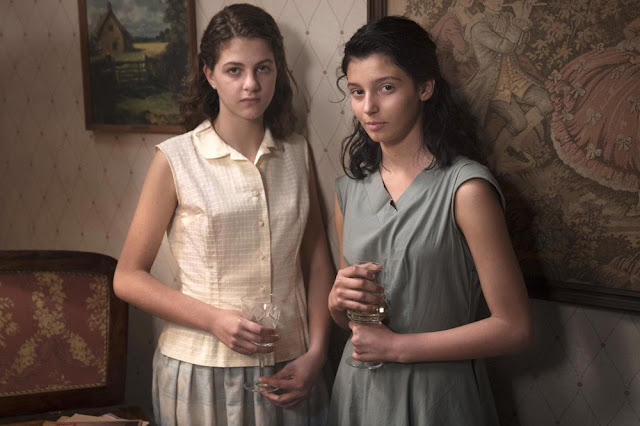Los Romanov / The Romanoffs
(Español / English)
Los Romanov es una ambiciosa serie coescrita y dirigida por Matthew Weiner, creador de Mad Men y autor de dos temporadas de Los Soprano.
Está conformada en
realidad por ocho películas independientes de cerca de hora y media de duración
(apenas enlazadas por alguna mención o reaparición mínima de algún personaje), que
transcurren en la actualidad, pueden verse en cualquier orden y se caracterizan
por estar protagonizadas por algún supuesto descendiente de la familia imperial
rusa.
Los “capítulos” atraviesan una amplia variedad de registros, géneros, estructuras narrativas y temáticas, se desarrollan en diversas ciudades (de París a Hong Kong y Vladivostok) y cada uno cuenta con su elenco, en algunos casos con grandes estrellas.
Cada capítulo tiene
un desarrollo en parte sorpresivo y a veces no lineal, por lo que no conviene
adelantar mucho sus tramas.
Los géneros transitados
son el drama familiar, la comedia, el thriller, el fantástico, el policial, el neo-noir, incluso con cambios dentro de un mismo capítulo e irrupciones de los
metaficcional.
Entre las temáticas abordadas figuran (en desorden y sin agotarlas): el abandono familiar, la pérdida, las paternidades y maternidades frustradas, los choques culturales y de clase, las rivalidades en el mundo del espectáculo, la enfermedad, el adulterio, el poder del rumor, la identidad de género, la confianza, el mundo del espectáculo, el editorial, el periodismo.
Como era de esperarse,
la calidad y el interés de los capítulos son desparejos, pero en todos hay una
bienvenida intención de contar una historia, nivel cinematográfico, muy buenas
actuaciones, bellas o interesantes locaciones y afortunadamente ninguno cae en
la liviandad y el tono cool de Modern Love, por ejemplo.
Por lo menos cuatro de los capítulos son muy buenos: el primero, con un sofisticado sentido del humor (y una enorme actuación de Marthe Keller), el segundo, por su desarrollo, cambios de clima y progresión dramática, el último, por su sofisticada estructura narrativa y el séptimo, acaso el mejor y más conmovedor, sobre un matrimonio que viaja a Vladivostok, por la original, inquietante y opresiva manera en que aborda su temática.
Algunos preferirán seguramente el capítulo
sobre una filmación, tal vez el más ambicioso, por su elenco y su deriva de
género. Me animo a decir que estos capítulos superan a varias películas de moda
en Netflix.
English Review
The Romanovs is an ambitious series co-written and directed by Matthew Weiner, creator of Mad Men and author of two seasons of The Sopranos.
It is actually made up of eight independent films of about an hour and a half in duration (barely linked by any mention or minimal reappearance of a character), that happen today, which can be seen in any order and are characterized by being starred by some supposed descendant of the imperial family Russian.
The “chapters” (which could be seen in any order) cross a wide variety of registers, genres, narrative and thematic structures, take place in different cities (from Paris to Hong Kong and Vladivostok) and each one has its own cast, in some cases with big stars.
Each chapter has a partly surprising and sometimes non-linear development, so it is not convenient to advance their plots much.
The genres are family drama, comedy, thriller, fantasy, police, even with changes within the same chapter and metafictional irruptions.
Among the topics addressed are (in disorder and without exhausting them): family abandonment, loss, frustrated fatherhood and motherhood, cultural and class clashes, rivalries in the entertainment world, illness, adultery, the power of rumor, gender identity, trust, show and editorial business, journalism.
As expected, the quality and interest of the chapters are uneven, but in all there is a welcome intention to tell a story, cinematic level, very good performances, beautiful or interesting locations and fortunately none falls into the lightness and cool tone of Modern Love, for example.
At least four of the chapters are very good: the first, with a sophisticated sense of humor (and a huge performance by Marthe Keller), the second, for its development and changes in weather, the last, for its sophisticated narrative structure and the seventh, perhaps the best and most moving, about a married couple traveling to Vladivostok, for the original, disturbing and oppressive way in which it addresses its theme. Some will surely prefer the chapter about a film, perhaps the most ambitious, for its cast and its gender drift.
I dare to say that these chapters surpass several hot movies
on Netflix.








Comentarios
Publicar un comentario
Mensajes sujetos a moderación